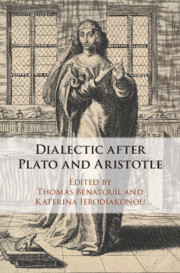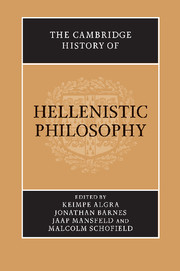Sextus Empiricus and Ancient Physics
The two books of Sextus Empiricus' Against the Physicists have not received much attention in their own right, as sustained and methodical specimens of sceptical philosophy. This volume redresses the balance by offering a series of in-depth studies on them, focusing in particular on their overall argumentative structure and on the various ways in which their formal features relate to their contents, showing how Sextus' procedures vary from one section to the other, and throwing new light on the way he was using his sources. It follows Sextus' own division of these two books into nine successive topics, namely god, cause, wholes and parts, body, place, motion, time, number, coming-to-be and passing-away. These nine chapters are preceded by an introduction which discusses a number of general features of Sextus' scepticism and links the conclusions of this volume to some recent discussions on the scope of ancient scepticism.
- A useful and systematic guide to Sextus' comprehensive treatise on ancient physics
- A novel approach to Sextus' philosophical aims and sceptical strategies, presenting Sextus as a philosopher in his own right and not only as a source for our knowledge of earlier philosophers
- Offers in-depth studies and illuminating interpretations of Sextus' complex arguments
Product details
July 2015Adobe eBook Reader
9781316309483
0 pages
0kg
4 b/w illus.
This ISBN is for an eBook version which is distributed on our behalf by a third party.
Table of Contents
- Introduction Keimpe Algra and Katerina Ierodiakonou
- 1. God: M 9.13–194 Richard Bett
- 2. Cause: M 9.195–330 Michael J. White
- 3. Wholes and parts: M 9.331–358 Katerina Ierodiakonou
- 4. Body: M 9.359–440 Gábor Betegh
- 5. Place: M 10.1–36 Keimpe Algra
- 6. Motion: M 10.37–168 R. J. Hankinson
- 7. Time: M 10.169–247 Susanne Bobzien
- 8. Number: M 10.248–309 Tad Brennan
- 9. Coming-to-be and passing-away: M 10.310–351 James Warren.




